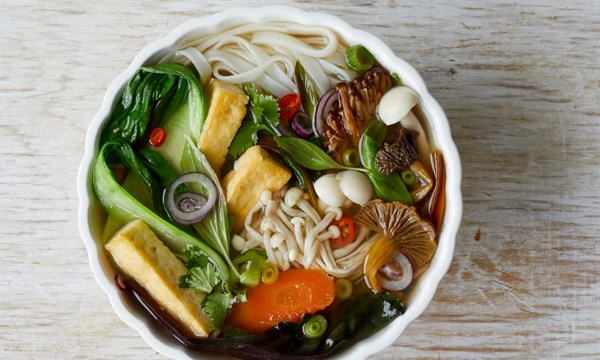Avoid the authenticity trap
January 1, 2020 by DarcieHave you ever looked at Yelp reviews when deciding on whether to eat at a particular restaurant? Have terms ‘authentic’ or ‘inauthentic’ swayed your decision-making? If so, you’ll want to read the article by Mai Tran, who implores to ignore the ‘purists’ and ‘zealots’ who demand authenticity in restaurants.

Tran says that almost always, the term ‘authentic’ is used to describe so-called ethnic restaurants, while it is rarely, if ever, used when discussing establishments that serve European foods. She also notes that the worst critics of ‘inauthentic’ food are often members of the culture on which a restaurant’s cuisine is based. Tran wonders “why do minority cultures, and particularly Asians, cling to traditional food so tightly?”
While relating the many reasons that people of any culture would want to open a restaurant, Tran notes that even if a restaurant opens with lofty goals, it still needs to be a successful business venture, and that sometimes means making changes to suit the restaurant’s patrons. Says Tran, “I’m no less Vietnamese because I’ll enjoy an “inauthentic” vegan phở, or a bành mì made by a Senegalese cook. There is no such thing as authentic food. Eat what you want, and enjoy it.”
Photo of Vegan pho from The Guardian Feast supplement by Uyen Luu
Categories
- All Posts (6620)
- Antipasto (1988)
- Author Articles (241)
- Book News (918)
- Cookbook Giveaways (945)
- Cookbook Lovers (247)
- Cooking Tips (97)
- Culinary News (298)
- Food Biz People (538)
- Food Online (758)
- Holidays & Celebrations (257)
- New Cookbooks (140)
- Recipes (1442)
- Shelf Life With Susie (231)
- What's New on EYB (129)
Archives
Latest Comments
- demomcook on Mother’s Day Gift Guide and Giveaway
- itssteph on Mother’s Day Gift Guide and Giveaway
- itssteph on Food Gifts Cookbook and Gift Box Giveaway
- Blue___Nile on Every Last Bite Cookbook Giveaway
- Blue___Nile on Sugarcane – Cookbook Giveaway
- Blue___Nile on Second Helpings – Cookbook Giveaway
- GreenhouseCheryl on My Life in Recipes – Joan Nathan Cookbook Giveaway
- GreenhouseCheryl on Flavorama Cookbook Giveaway
- GreenhouseCheryl on Hot Sheet – Cookbook Giveaway
- GreenhouseCheryl on Every Last Bite Cookbook Giveaway